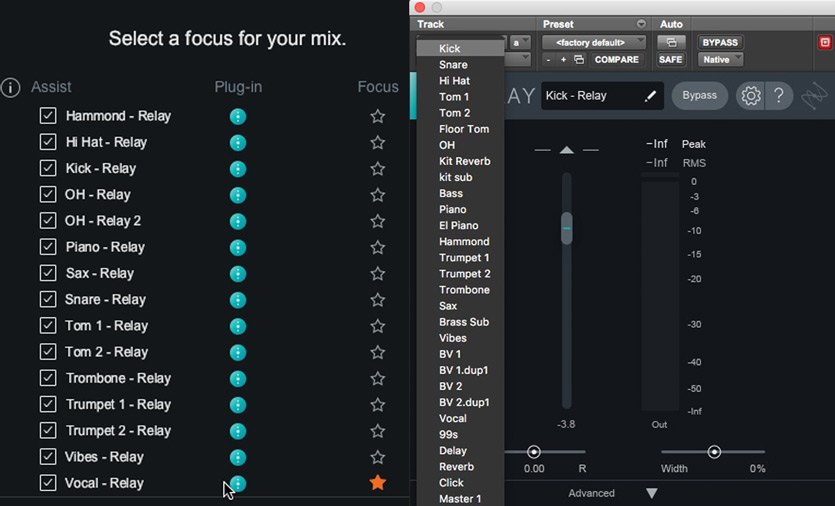Izotope Gain Staging
Gain staging and volume management are the solid foundation every mix sits upon, and yet it’s often glanced over by people first learning the ropes. The impulse to turn tracks up is almost impossible to deny, and we end up raising levels and raising levels until everything sounds like a big, loud mess. When a session is properly gain staged, things sound balanced whether it’s a banger or a ballad, and that is what we’re ultimately going for. In this piece, we talk about setting up your mix for success by properly managing volume levels, and the underlying theory behind gain staging.
If you’re interested in more technical information and specific tips on how to employ gain staging in your next mix, head to this guide.
Gain Staging
Master Assistant then sets the preset’s Equaliser module to adjust the mix’s spectral balance to that of the target curve, analyses the dynamic range and configures the Dynamics module to control it, sets the Maximizer’s Ceiling value and adjusts its Threshold to hit the target loudness, analyses the Maximizer’s frequency-dependent gain. Audio plugins for all operating systems (Windows, Mac OS X, Linux, iOS and Android), tagged as Gain Staging. The results are sorted by date added (newest first). You can amend the search above. Direct link to this search «.
Gain staging is the technical term for managing the volumes of multiple sound sources through one or more shared outputs. A gain stage is any point in the signal flow where volume can be adjusted and includes the level of an input on your audio interface, the fader on each DAW or mixer channel, the Master output, as well as many other potential points in the signal flow.
Teamviewer for mac persistent access across profiles. Home Automation. Downloads. Culture. How-To.
Conceptually, it might not seem like the most difficult thing to accomplish, especially relative to other mixing techniques, but it often prevents people from creating a solid mix. In order to successfully gain stage, we need to understand the interplay between frequency and amplitude and the importance of managing the levels of all the tracks in our session.


In audio engineering, a gain stage is a point during an audio signal flow that the engineer can make adjustments to the level,[1] such as a fader on a mixing console or in a DAW. Gain staging is the process of managing the relative levels in each step of an audio signal flow to prevent introduction of noise and distortion, feeding the inserts, such as equalizers and compressors with the right amount of signal, particularly in the analogue realm. Ideal gain staging occurs when each component in an audio signal flow is receiving and transmitting signal in the optimum region of its dynamic range.[2]
In an audio system containing both microphones and loudspeakers, the total amount of gain in the system can exceed 100 dB. This is usually broken up into a number of smaller steps, called gain stages, where the signal is amplified or attenuated as needed before reaching the loudspeaker.
In a signal flow beginning with an acoustic sound source (such as a musical instrument or singer), the Microphone preamplifier is typically the first electronically adjustable gain stage, where the signal is amplified by as much as 95 dB in exceptional cases[citation needed]. Before reaching the microphone, the sound source is subject to the Inverse-square law, which states that sound intensity diminishes as distance between the sound source and the microphone increases. This means that (1) moving the microphone closer to the sound source increases the signal level produced by the microphone, and (2) moving the microphone farther away from undesirable noise sources will diminish the amount of noise in the microphone signal. Microphone placement is therefore an important aspect of gain staging[citation needed].
Izotope Gain Staging Software
Following microphone placement and the microphone preamplifier, the audio signal has been amplified to Line level, and can be processed by a device capable of accepting a line-level signal.
Izotope Gain Staging Software
External links[edit]
References[edit]
- ^Thompson, Dan (2005). Understanding Audio. Berklee Press. ISBN978-0-634-00959-4.
- ^Davis, Don (2013). Sound System Engineering. Focal Press. ISBN978-0-240-81846-7.